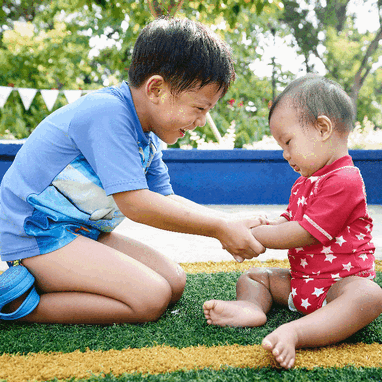Chickenpox is a highly contagious but generally mild infection that can cause complications in some people.
What is it?
Varicella, commonly called chickenpox, is a highly contagious infection caused by the varicella-zoster virus. It usually causes a red, blistering itchy rash all over the body.
Chickenpox is usually a mild disease that lasts a short time in healthy children. Yet it can cause serious complications in adults and people of any age with weakened immune systems.
After infection, the virus remains 'hidden' in your body and may become active again many years later, causing shingles (herpes zoster). Shingles is more common in older adults and people with weakened immune systems, but it can occur at any age.
What are the symptoms?
Symptoms generally occur 10 to 21 days (commonly around 14 to 16 days) after infection.
The main symptom of chickenpox is a distinct chickenpox rash that covers the body in red, itchy spots which turn into small blisters that then crust over. It usually starts on the head, then moves to the torso, arms and legs.
The infection can be mild, moderate or severe, with a severe case consisting of more than 500 blisters mostly on the torso. Other symptoms of chickenpox may include flu-like symptoms (fever, headache, and sore throat).
Complications, although rare, include bacterial infections of the skin, pneumonia (lung infection), difficulty walking and balancing, meningitis (swelling around the brain and spinal cord) and encephalitis (brain swelling).
This is not a full list of symptoms that can occur following chickenpox infection. Please speak to a healthcare professional if you have any concerns about chickenpox.
How is it spread?
The virus can pass from person to person through the air via coughs or sneezes; or via direct contact with the fluid from chickenpox blisters.
An infected person can spread the virus at least 2 days before they develop the blisters and until the last blister has crusted over. Children with chickenpox should stay home until the last blister has dried.
Who is at risk?
Anyone who is not immunised or who has not previously had chickenpox may be at risk of catching the virus. This includes both children and adults.
Those that may be at a higher risk of infection and serious complications include:
- non-immune healthcare workers
- childcare workers
- pregnant women (an infection during pregnancy can have serious consequences for the unborn baby, too)
- newborn babies
- people with weakened immune systems
Other people may be at risk of chickenpox infection. Please speak to a healthcare professional regarding your individual circumstances.
Discover tips to help strengthen immune system function and keep you feeling your best as you age. Talk to your doctor about ways to maintain a healthy immune system and embrace healthy ageing
PM-AU-AVX-WCNT-190030 Date of GSK Approval: January 2021


